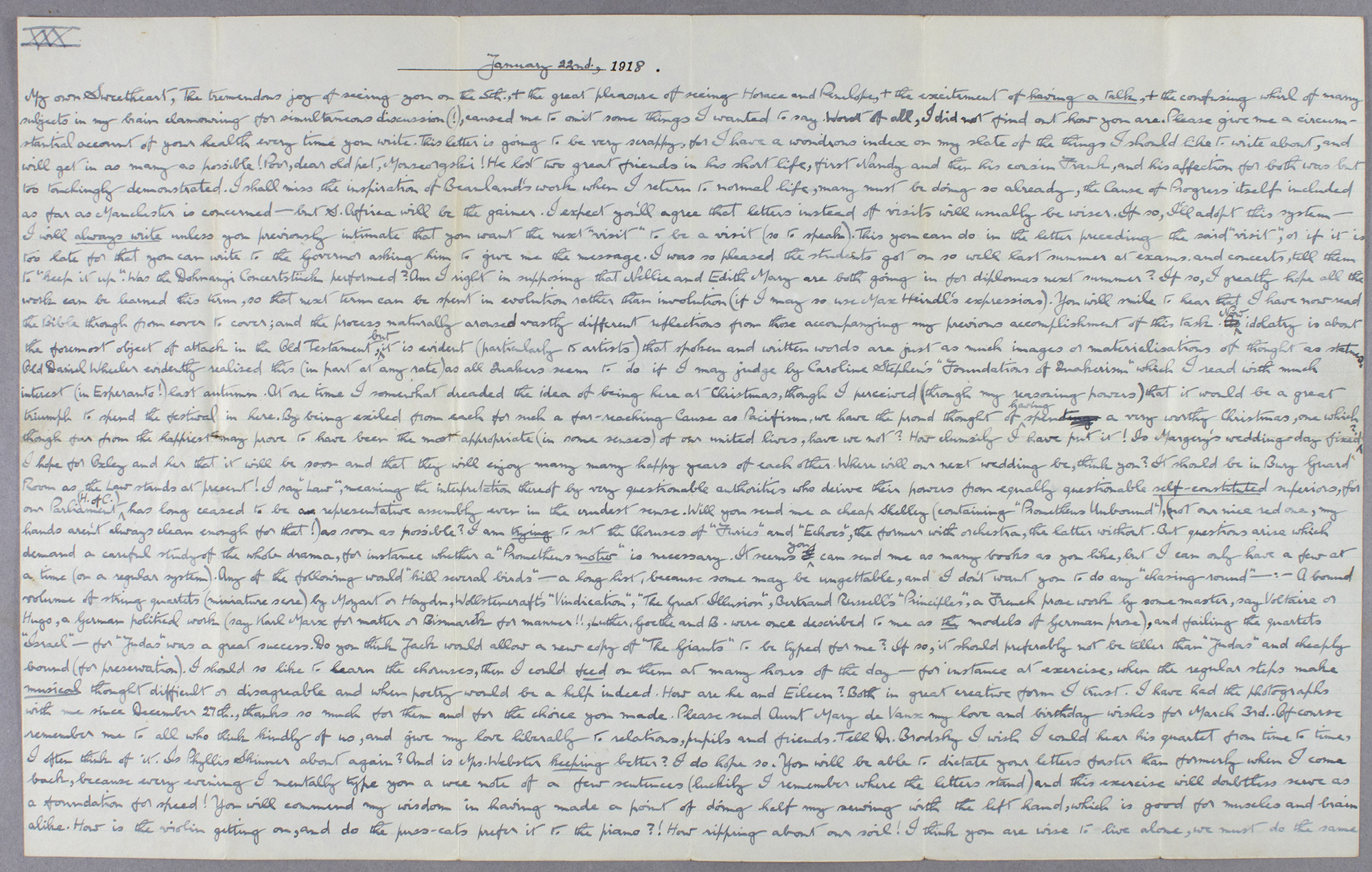Paris-Manchester 1918
Conservatoires in time of war
5th March 1918 (Frank Merrick)
Frank comments on his students’ achievements and outlines his own political conviction and search for justice for all Conscientious Objectors.
Credit: University of Bristol Library, Special Collections (DM2103)
Transcription
I am so glad you do lots of music with Edith H., ‘old B.’ de Tell. Edith H. I am tremendously pleased she got the Hallé scholarship, not only for her sake and ours, but also because I believe she has the necessary persistence to go on improving in later years, and thus live a musical life, such as the Hallé scholarship is intended to encourage. I’m very glad Nelly also did well at the contest, she also can and will do many good things musical in time to come. The pieces they are all doing encourage me with a certainty of this good progress. Mary Spencer has well justified the hopes of being ‘up to’ OP [check?] standard in such a Beethoven movement as the one she was to play last month. As for Edith Mary, I’m specially glad her memory is growing strong – so much unconscious ‘inward digestion’ is accomplished when a live brain is well enough stocked with ideas on which to work. My love to them all. And who dares to venture on a Schönberg fragment?!
Quotes letter about his own political conviction and search for justice for all Conscientious objectors. Seeking absolute rather than conditional suspension.
‘I beg to submit that a man who, rather than obey military orders, chooses a life in which the rigid suppression of every natural and spontaneous impulse is involved (as it is necessarily involved in British prison life), thereby proves his sincerity so incontestably that no human (and consequently fallible) tribunal can be justified in subsequently maintaining its previous finding against him, from which it follows that the immediate granting of absolute exemption to all who are in a similar position to mine, would be no more than a base act of tardy justice.




